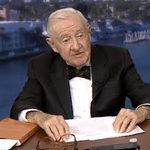
Retired U.S. Supreme Court Justice John Paul Stevens (pictured), in remarks to a capital case seminar hosted by California Attorneys for Criminal Justice, criticized the death penalty as a “wasteful enterprise” and urged voters, legislators, and the courts to address the issue. Speaking by video, the former Justice said, “Few other civilized societies engage in such a wasteful use of resources with no demonstrated benefit to society. Taxpayers should terminate this waste as expeditiously as possible.” He called the cost of continuing to prosecute capital cases “unacceptable,” saying the expense of capital trials is “particularly outrageous in light of the lack of evidence supporting the death penalty’s purported justifications.” Justice Stevens said that “the deterrence value of the penalty has diminished almost to zero” with the availability of life without parole as a sentencing option, and is further diminished by the length of time between conviction and execution, if one even occurs. “If the benefits are trivial compared to the potential harm of such an important issue,” Stevens said, “as a matter of sound policy you should get rid of it.” Citing the wrongful execution of Carlos Deluna, “a man who was unquestionably innocent of murder,” as an example of the “ever-present potential for mistake,” Stevens said, “it is time to put an end to irrevocable and mistaken state action of that kind.” He concluded, “I’ve thought about this issue repeatedly, and the more I think about it, the more it seems to me that it really doesn’t make much sense for society to engage in such a wasteful enterprise when there are so many good arguments against going forward.”
(R. Sanger, “CACJ’S Past President Robert Sanger interviews United States Supreme Court Justice John Paul Stevens,” California Attorneys for Criminal Justice, February 21, 2016; Photo by California Attorneys for Criminal Justice.) See U.S. Supreme Court.
United States Supreme Court
Oct 08, 2024

United States Supreme Court Will Consider Significance of Prosecutor’s Confession of Error in Glossip v. Oklahoma
United States Supreme Court
Sep 19, 2024

